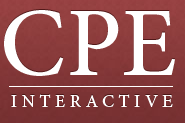This course will take the mystery and pain out of the process by introducing a methodology called “Closing the Loop Framework”. It provides a foundation for how to develop audit steps based on audit scope and the evidence required to achieve audit objectives.

Developing an audit work program can be a daunting process, especially when the audit area is one with which the auditor is unfamiliar, and/or has not been audited previously.
This course will take the mystery and pain out of the process by introducing a methodology called “Closing the Loop Framework”. It provides a foundation for how to develop audit steps based on audit scope and the evidence required to achieve audit objectives.
Less experienced auditors will learn how to build the audit program, and experienced auditors will have an opportunity to refresh their skill-set and consider the Closing the Loop Framework as a tool for improving audit quality. You will have the opportunity to build components of an audit program in a workshop.
In this seminar, we will discuss the critical issues to be considered:
Fundamental requirements for audit work programs referencing audit standards and generally accepted practices
Planning performance, financial, compliance and IT audits
Using the Closing the Loop Framework to ensure completeness and quality of the planning and audit execution process
How well-developed audit work programs support the management and quality assurance of audits
Learning Objectives:
Gain an understanding of the role of the Audit Work Program
Become familiar with Standards-based Requirements for Audit Work Programs
Strengthen one’s skills in developing audit steps and audit work programs
Understanding how Checklists and Internal Control Questionnaires can be used
Sponsors of Group Training may elect to provide their own CPE certificates, or CPEinteractive may issue CPE certificates, If the latter option is selected, CPEinteractive must maintain sign-in sheets. Certificates will be emailed after the event.
© 2025 coursetakers.com All Rights Reserved. Terms and Conditions of use | Privacy Policy